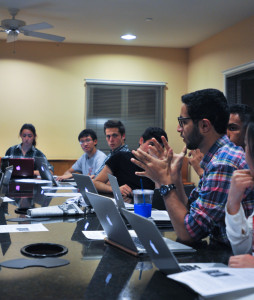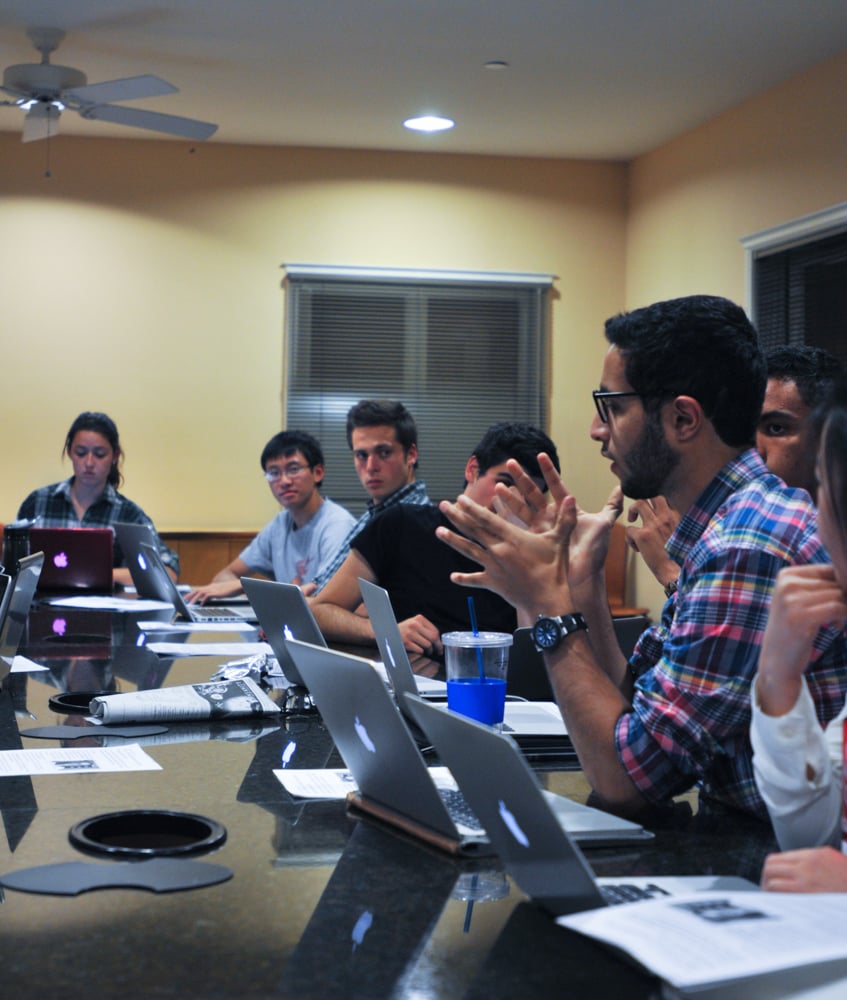
In a meeting that lasted almost three hours, the 15th Undergraduate Senate passed a funding bill granting the Stanford Speakers Bureau the $20,000 they needed to secure comedian Aziz Ansari for an on-campus performance.
The Senate was forced to use money from the buffer fund due to the last-minute nature of the request. Several senators expressed concern over using money that is not traditionally used for general programming and events.
“My reservations at the beginning were simply what precedent it would set,” Senator Zane Hellmann ’16 said. The senators were under the impression that the Speakers Bureau had approximately $100,000 in its reserves fund.
Senator Angela Zhang ’16, one of the bill’s sponsors, called in Robert Chun ’16, vice president of the Speakers Bureau, to answer questions about why the Speakers Bureau was asking for money when it had $100,000 in reserves. Chun claimed that the Bureau needed a large reserve fund to plan early for events.
“I feel like [the Speakers Bureau] has enough money in their reserves,” said senator Hisham Al-Falih ’16. “They could have gotten the money from their reserves right now and then figured out another source of funding as they went on.”
While the bill ultimately passed by an 11-3 margin, it came with some conditions.
Senator Ilya Mouzykantskii ’16 extracted a promise from Chun that he would push for the Speakers Bureau to make tickets first available to undergraduates. Although Chun, as vice president, did not have the power to make that promise at the meeting, he assured the senators that he would strongly endorse giving undergraduates the ability to obtain tickets to the event before the rest of the Stanford community.
“I’m very glad that Aziz Ansari is coming to campus,” Senate Chair Ben Holston ’15 said. “I think it will be a great show.”
Official debate regarding the constitutional amendment mandating upperclassmen spots on the Senate also began Tuesday night. The Senate will vote on a bill next week that enforces the amendment approved by the student body last spring.
The current version of the bill calls for the election of three upperclassmen, so long as they receive at least two-thirds of the votes received by the underclassmen with the twelfth-most votes.
According to Holston, the two-thirds requirement was designed to ensure that upperclassmen elected to the Senate under this new provision are deserving of their spot.
“Last year, there were two upperclassmen that ran,” Holston said. “Without any checks, and just implementing the amendment directly, theoretically they would have needed one vote to get elected.”
The Senate also met with Jeanette Smith-Laws, director of operations and student unions, to discuss the progress of the Windhover Contemplative Center. The Center, which will be located across from Roble Hall, will function as a reflective space and also house several pieces of art from the collection of the late Nathan Oliveira, a former Stanford professor.
“Your phones, computers and devices will not work in this space as soon as you walk through this space, intentionally,” Smith-Laws said.
The building is scheduled to be completed in May.
The Senate also passed an additional $74,602.14 in funding bills.
Contact Andrew Vogeley at avogeley ‘at’ stanford.edu.
